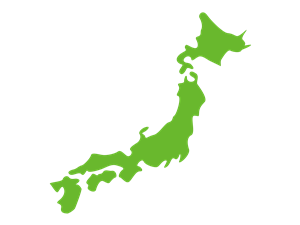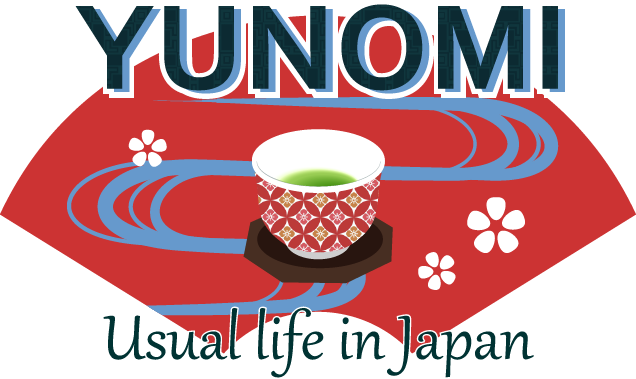Japanese-made English (wasei-eigo) is a group of English-like words created in Japan that sound familiar to English speakers but carry different meanings or usages.
These words are not “wrong English,” but linguistic adaptations shaped by Japanese culture, pronunciation, and social context—so this article explains what Japanese-made English is, why it exists, how it differs from real English, and common examples you’ll encounter in everyday life in Japan.
What Is Japanese-Made English (Wasei-Eigo)?

Japanese-made English is a category of words that look or sound like English but were created or reshaped in Japan and are not used the same way by native English speakers.
Unlike loanwords that retain their original meaning, wasei-eigo often:
- combine multiple English words
- shorten longer expressions
- shift meanings to fit Japanese culture
- evolve through pronunciation and local usage
They are not “mistakes” in Japanese—they are new words born inside Japanese society.
Wasei-Eigo vs. Katakana English: What’s the Difference?
Not all English-like words in Japanese are the same. Here’s a simple way to tell them apart:
- Katakana English: borrowed words that keep their original meaning (e.g., coffee, hotel, internet)
- Wasei-Eigo (Japanese-made English): words created or transformed in Japan, often with different meanings or usage than standard English
This is why some English speakers can understand many Japanese loanwords easily—while others cause a confused “Wait… what?”
Why Does Japanese-Made English Exist?

Japanese-made English developed for a few very natural reasons:
- Sound adaptation: English pronunciation changes to fit Japanese phonetics.
- Efficiency: long phrases get shortened for daily use.
- Cultural needs: new words appear for concepts common in Japan.
- Media influence: TV, advertising, and pop culture accelerate word creation.
In short: language adapts—and wasei-eigo is one result of that process.
Common Types of Japanese-Made English
1) Job and social titles

“Salaryman” and “Office Lady (OL)”
A salaryman refers to a male office worker employed by a company. A female office worker may be called an Office Lady (often shortened to OL).
These terms sound English but are rarely used this way outside Japan. They reflect workplace roles and the cultural image of “corporate Japan” seen in job ads, magazines, and TV dramas.
2) Media and public life words

“Talent,” “Front,” and “Gasoline Stand”
- Talent: In Japan, a “talent” (tarento) is a TV personality or entertainer—not simply “a talented person.”
- Front: At hotels, the reception desk is commonly called the “front.”
- Gasoline Stand (GS): A gas station is often referred to as a “gasoline stand,” and you may see “GS” on maps.
Each term is understandable in Japan, but the usage can surprise visitors expecting standard English.
3) Clothing and vehicles

“Jea-pan,” “G-pan,” and “Auto-bi”
- Jea-pan / G-pan: Jeans were once described as “jea-pan” (from jeans + pants), later shortened to “G-pan.”
- Auto-bi: Short for “automatic bicycle,” meaning motorcycle.
These words show how English fragments are reshaped into forms that feel natural in Japanese—even if they are confusing in English.
4) Emotion and relationships

“Skinship” — a warm, Japanese concept
Skinship describes affectionate physical contact—like a mother hugging her baby, or friends holding hands. The “-ship” comes from friendship, creating a word that feels warm and wholesome in Japanese, but unusual in English.
5) Meaning shifts and nuance
“You Are About”
When someone says “You are about,” they usually mean:
- “You’re not quite accurate,” or
- “You’re slightly off.”
This comes from the Japanese sense of about meaning “almost.” To native English speakers, it sounds strange—but within Japanese logic, it feels surprisingly reasonable.
6) Misheard English

“Y-Shirt” — the mystery of the letter Y
A Y-shirt means a dress shirt. One popular explanation is that “white shirt” was heard as “Y,” and the name stuck. Today it can refer to business shirts of any color.
7) Technology abbreviations

“Pasokon” and “Note Pasokon”
- Pasokon = Personal Computer
- Note Pasokon = Laptop computer
These abbreviations are so common that you’ll see them in advertisements and product descriptions across Japan.
Should Learners Avoid Using Japanese-Made English?

This is a common question among Japanese learners—and the answer is not a simple yes or no.
From an English-learning perspective, Japanese-made English should not be used as international English. If you say salaryman, skinship, or gasoline stand outside Japan, there’s a good chance you won’t be understood.
However, that does not mean learners should ignore wasei-eigo. In fact, knowing Japanese-made English is essential for understanding real Japanese conversations.
When you should avoid using wasei-eigo
- Speaking with native English speakers outside Japan
- Writing academic or professional English
- Situations where precise international English is required
In these cases, using standard English equivalents is safer and clearer.
When you actually need to know (and sometimes use) it

Inside Japan, many wasei-eigo words are so deeply rooted that there is no natural alternative in everyday conversation.
- Salaryman: You could say “company employee,” but it doesn’t match how people naturally speak in Japan.
- Pasokon: Saying “personal computer” in Japanese conversation sounds stiff and unnatural.
- Front (hotel): Even staff members use this term—avoiding it can create more confusion.
Sometimes, wasei-eigo is simply the most efficient and natural choice (and yes, it can be a little funny once you notice it).
The best approach for learners
The smartest strategy is not avoidance, but awareness:
- Know which words are Japanese-made English
- Learn the standard English equivalents
- Use them naturally inside Japan
- Switch to international English when needed
Once you reach that stage, wasei-eigo stops being a “mistake” and becomes a tool—one that helps you navigate Japanese society more smoothly.
FAQ: Japanese-Made English

Do Japanese people know these words aren’t real English?
Many do, but the boundary is often blurry—especially for commonly used words that feel “normal” in Japanese daily life.
Are new wasei-eigo words still being created?
Yes. Media, technology, and social trends keep generating new expressions, especially around entertainment and digital life.
Should learners avoid wasei-eigo completely?
No. Avoid using it as international English, but learn it for comprehension in Japan—and use it when it’s the most natural option locally.
Conclusion
Japanese-made English is not a linguistic failure—it’s a cultural artifact. Each word tells a story about how Japan interacts with foreign language, adapts it, and makes it its own.
Once you recognize wasei-eigo, you’ll start hearing it everywhere—and instead of confusion, you might just smile at how language evolves.

